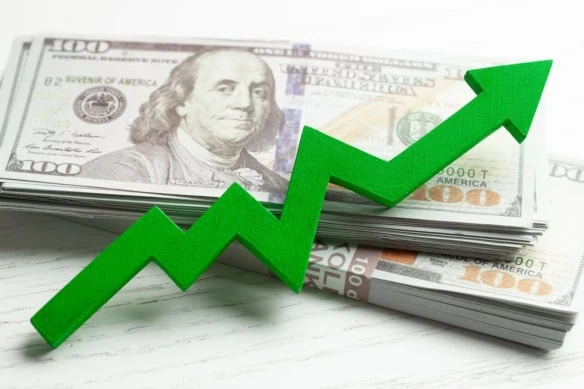In the investment landscape, there’s an exclusive group of dividend stocks known as the “Dividend Kings.” And they exemplify the remarkable benefits of long-term, stable investing.
These companies have consistently increased their dividends for at least 50 consecutive years—no easy feat. Sure, they’re usually not the most exciting or headline-grabbing businesses. In fact, many of them operate in boring industries: consumer goods, industrials, financials, and utilities.
But as seasoned investors know, when it comes to dividends, boring is beautiful. And that makes these stocks downright gorgeous.
Today, I’m going to shed some light on the Dividend Kings. These companies have demonstrated unwavering financial resilience and shareholder-friendly management teams. And over time, they’ve delivered phenomenal “yield on cost”—that is, long-term investors currently enjoy substantially higher yields now than when they first bought in.
Table of Contents
What Is a Dividend King?

In the dividend world, a publicly traded company that has a history of unwavering dividend growth is referred to as a Dividend Aristocrat. The exact qualifications for “Aristocracy” depends on the index—the S&P 500 Dividend Aristocrats, for instance, have improved their annual payouts for at least 25 consecutive years—but in general, it’s a way of honoring a company’s commitment to shareholder rewards.
A Dividend King, however, is an especially prestigious title bestowed upon a select group of publicly traded companies that go above and beyond your average Aristocrat. Specifically, to be a Dividend King, a company must raise its annual dividend payout without interruption for at least 50 consecutive years.
Put more briefly: Dividend Kings are best-in-class dividend-growth stocks.
Young and the Invested Tip: Despite the already high barrier to entry of 50 years, several Dividend Kings boast several decades of consecutive dividend growth in excess of this lofty minimum.
Why Should You Buy Dividend Kings?

Investing in a Dividend King can be likened to owning a piece of a business that not only survives but thrives over decades, navigating through economic ups and downs, business disruption, and technological innovation. Without these deft business maneuvers, these companies wouldn’t be able to finance these increasing dividend payouts year in and year out.
Just think about the events these firms have had to navigate successfully over the past 50 years: multiple wars, continued business disruption from technological advances, deep and shallow recessions alike, a global pandemic, and more.
Despite all that, they managed to keep fattening their dividends without so much as flinching.
Dividend Kings hold a particular appeal among investors who want to generate steady (and increasing) income over time. That’s because extended periods of dividend growth can lead to a much higher yield on the original investment—a concept known as “yield on cost.” We define and explain the concept in more detail at the end of this article, but in short, if you buy a stock that yields 2%, and it grows its dividend aggressively and for a long period of time, you might eventually be sitting on dividend yields of 6%, 8%, 10% … or even more!
If you’re looking for dividend stock ideas, read on as I discuss a specific set of Dividend Kings: those that are part of the S&P 500 Dividend Aristocrats. The S&P 500 Dividend Aristocrats are blue-chip royalty—predominantly large-cap stocks that have upped the ante on their payouts yearly, unimpeded, for at least a quarter-century.
These Dividend Kings, then, are the longest-serving dividend-growth stocks you can find in the U.S. stock market.
2024’s Dividend Kings
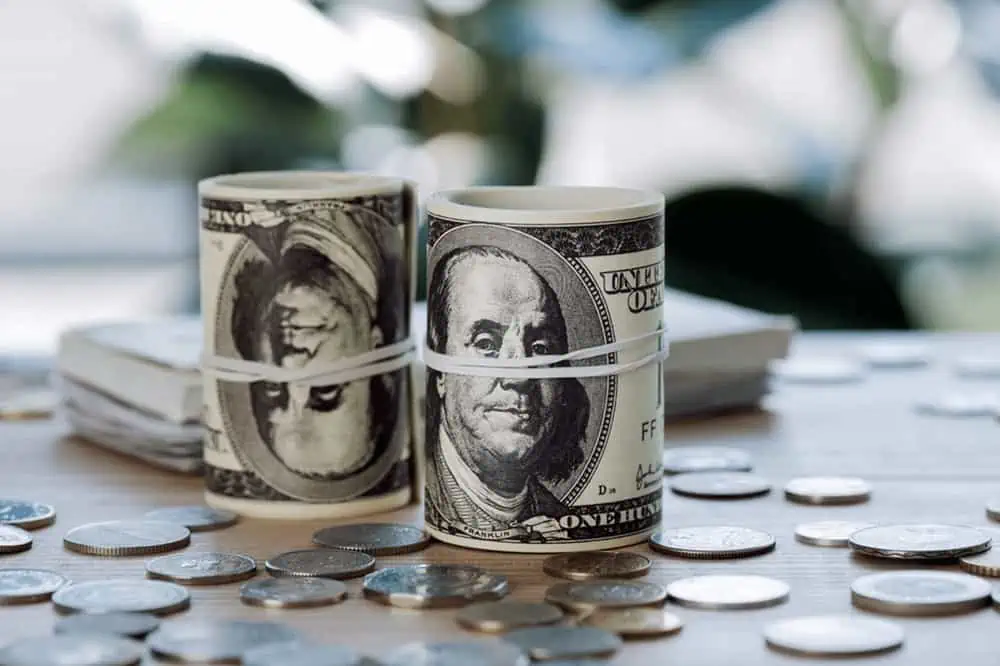
Here’s a look at each Dividend King within the S&P 500 Dividend Aristocrats. This list of stocks is ordered alphabetically.
1. 3M
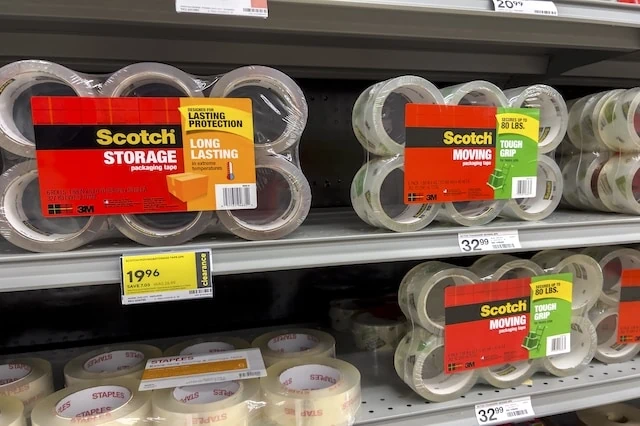
— Market value: $73.6 billion
— Dividend yield: 2.1%
— Sector: Industrials
— Dividend-growth streak: 65 years (ended May 2024, see Editor’s Note)
The first Dividend King on our list has an expiration date.
3M (MMM) is a well-known industrial conglomerate offering a vast array of products across various medical, office, and industrial supply markets. Its lineup is chock full of well-known brands, including Post-it Notes, Scotch tape, Nexcare bandages, Filtrete air filtration products, and Scotchgard protective repellants, among many many others.
3M is a perfect example of how many Dividend Kings have had to evolve with the times. Its roots date back to 1902, when it was called Minnesota Mining and Manufacturing and mined mineral deposits for grinding wheel abrasives. Since then, it has turned into an industrial powerhouse, holding more than 100,000 patents that back tens of thousands of products sold in more than 200 countries.
Related: 7 High-Quality, High-Yield Dividend Stocks
MMM shares have been particularly troubled compared to other Dividend Kings; shares have lost about half of their value over the past few years thanks to issues related to COVID-19, litigation involving their earplugs, and continued growth concerns.
Editor’s Note: And while 3M has paid a dividend for over a century, 3M’s days as a Dividend Aristocrat—and thus a Dividend King—are numbered. 3M carried a 65-year dividend-growth streak into 2024. However, in mid-May, the company announced that, following its spinoff of its health care business, Solventum (SOLV), it would cut its dividend from $1.51 per share quarterly to just 70 cents. As a result, MMM will almost certainly be removed from the Dividend Aristocrats during the index’s reconstitution next January.
Related: Best Fidelity Retirement Funds for a 401(k) Plan
2. Cincinnati Financial

— Market value: $21.2 billion
— Dividend yield: 2.4%
— Sector: Financials
— Dividend-growth streak: 64 years
Cincinnati Financial Corporation (CINF) is a Dividend King that has consistently delivered shareholder value from within the insurance industry since 1950. Founded and based in Fairfield, Ohio, Cincinnati Financial has established itself as a reliable property and casualty insurer, along with offering life insurance and asset management services.
Insurance companies aren’t exactly first-to-mind when it comes to even-keeled financial performance, just given the ups and downs they can suffer from interest-rate changes, natural disasters, and other outside forces. To wit, CINF generated net income of $1.8 billion in 2023. It lost $486 million across 2022. And it earned nearly $3 billion in 2021.
Related: 5 Best Vanguard Dividend Funds [Low-Cost Income]
But the company’s steady approach to insurance and financial services has been key to building investor confidence. That’s no small feat—consider that scores of insurers and financial firms were forced to suspend or at least reduce their dividends during and after the Great Recession to preserve cash.
Not Cincinnati Financial, which has a conservatively managed payout. Indeed, CINF only pays out about a quarter of its profits to fund its dividend—and yet, it has managed to grow that dividend for 64 consecutive years. That includes a roughly 8% upgrade, to its current 81¢ per share, announced in late January 2024.
Related: The 9 Best ETFs for Beginners
3. Coca-Cola

— Market value: $304.5 billion
— Dividend yield: 2.7%
— Sector: Consumer staples
— Dividend-growth streak: 62 years
Consumer staples stocks—companies that make goods considered to be basic necessities—make for some of the best dividend stocks. That’s because when times get tough, households might spend less on vacations and designer jeans, but they’re not going to stop going to the grocery store.
So it should be no surprise that Coca-Cola (KO) isn’t just a beverage giant, but a Dividend King to boot.
Related: 10 Best Dividend Stocks to Buy [Steady Eddies]
The Atlanta-based beverage company has more than 130 years of operating history, serving up more than 500 brands across more than 200 nations worldwide. It’s true—sugary soft drinks might not be a growth business in an age of healthier living, but Coca-Cola products still have strong baseline demand. Plus, this mega-cap powerhouse is more than just Coke. Coca-Cola boasts a wide variety of other beverage brands, including Vitaminwater, Fuze teas, Powerade energy drinks, Minute Maid juices, Costa Coffee, and many more.
Coca-Cola announced a 5% hike to its payout, to 48.5¢ per share, in February 2024, marking its 62nd consecutive annual dividend increase. That long-standing and long-growing dividend is why KO shares have so much institutional demand, including a massive stake held by Warren Buffett’s Berkshire Hathaway (BRK.B). Buffett’s holding company is KO’s largest shareholder, at more than 9% of the company’s shares—a strong foundation for share prices, as well as a mandate for consistent and generous dividends.
Related: Best Fidelity Retirement Funds for an IRA
4. Colgate-Palmolive
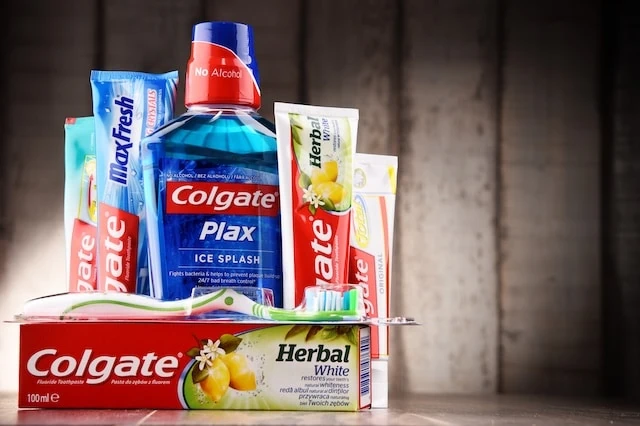
— Market value: $83.3 billion
— Dividend yield: 1.9%
— Sector: Consumer staples
— Dividend-growth streak: 62 years
Colgate-Palmolive (CL) is another consumer staples giant among the ranks of the Dividend Kings.
Founded in 1806 and headquartered in New York City, Colgate-Palmolive has built a global empire in oral care, personal care, home care, and pet nutrition. The company’s extensive product portfolio—featuring not just its namesake brands, but also Hill’s Pet Nutrition, Speed Stick deodorants, Irish Spring soaps, and Tom’s of Maine natural care products, among others—caters to everyday consumer needs, ensuring persistent demand and financial stability.
Related: The 7 Best Fidelity Index Funds for Beginners
That stability has filtered through to shareholders via a longtime dividend. CL started paying dividends more than a century ago, when Grover Cleveland was serving his second term as president. And it has increased that payout without interruption for 62 consecutive years. The most recent improvement was a 4% bump announced in March 2024, to its current 50¢ per share.
Related: The 7 Best Index Funds for Beginners
5. Consolidated Edison

— Market cap: $35.2 billion
— Dividend yield: 3.2%
— Sector: Utilities
— Dividend-growth streak: 50 years
Utilities are a great place to sniff out sturdy dividends. Electricity, natural gas, and water are among the most vital things we have to purchase, and the expensive infrastructure and highly regulated nature of publicly traded utilities means competition is hard to come by. That ensures a steady stream of cash, much of which often tends to find its way back into shareholders’ pockets in the form of dividends.
Like Young and the Invested’s content? Be sure to follow us.
That’s what makes a stock like Consolidated Edison (ED) so attractive to income investors.
“ConEd” and its subsidiaries distribute electricity to about 3.9 million customers in New York City, as well as several other counties in New York State and New Jersey; and natural gas to 1.2 million more. This dense area of the U.S. is certainly not going to be less reliant on energy anytime soon, translating into a nearly certain stream of revenue for this dividend stock.
Related: 9 Best Monthly Dividend Stocks for Frequent, Regular Income
This consistency has allowed ConEd, a Dividend Aristocrat, to provide 50 years of consecutive dividend increases to its stockholders. Well, technically, ED won’t be a Dividend King until March 15, when its newly upgraded dividend is paid out. But Consolidated Edison made the announcement in January 2024 that it would be upping its quarterly payout by 2.5%, to 83 cents per share … and if nearly a half-century of distribution past is precedent, that dividend is as good as paid.
Admittedly, the payout ratio is on the high side. However, it’s still manageable at less than two-thirds of next year’s earnings, and Edison features extremely stable earnings that can slowly but persistently grow over time—allowing its dividend to expand the same way.
Related: Best Vanguard Retirement Funds for a 401(k) Plan
6. Dover
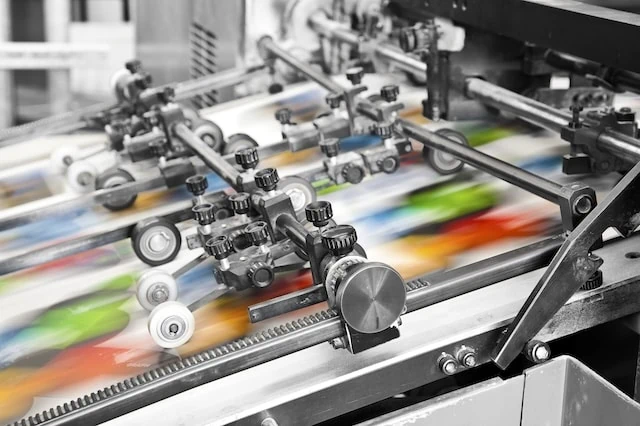
— Market value: $26.2 billion
— Dividend yield: 1.1%
— Sector: Industrials
— Dividend-growth streak: 69 years
Established in 1955 and headquartered in Downers Grove, Illinois, Dover (DOV) is a diversified global manufacturer, providing innovative equipment, components, and services across multiple industries, including energy, engineered systems, fluids, and refrigeration and food equipment.
Related: 5 Best Fidelity Retirement Funds [Low-Cost + Long-Term]
The company’s strategic approach to diversification and its focus on industrial innovation have been central to its enduring financial performance. Dover provides everything from radio frequency and microwave filters for defense and aerospace firms to trash compactors and recycling balers. This wide variety of competencies has helped Dover weather the ups and downs of the competitive, cyclical industrial manufacturing industry.
Dover has a long and storied history of consistent dividend payments that includes a 69-year streak of annual payout increases. Its past few dividend bumps admittedly have been small—increases of roughly 1%, including a half-cent uptick announced in August 2024 to 51.5¢ per share quarterly. Still, Dover maintains an extremely conservative payout ratio that’s currently less than 20% of its earnings, ensuring rain or shine, the company should be able to afford its dividend while reinvesting most of its profits back into the business.
Related: 11 Best Stock Screeners & Stock Scanners
7. Emerson Electric
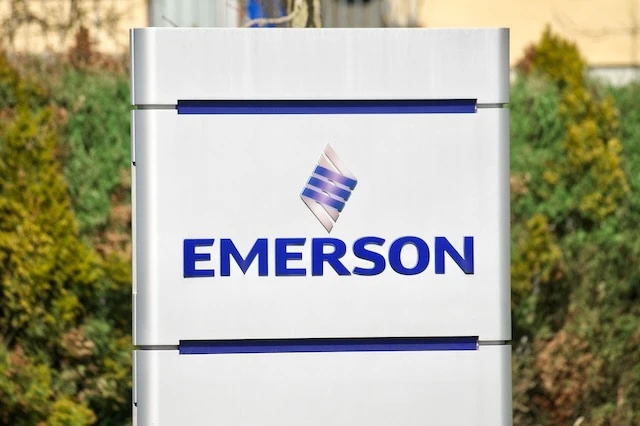
— Market value: $60.6 billion
— Dividend yield: 2.0%
— Sector: Industrials
— Dividend-growth streak: 67 years
Emerson Electric (EMR) is an industrial-sector firm that was founded in 1890 and headquartered in St. Louis. Emerson has established itself as a global leader in technology and engineering, providing innovative solutions in process control, industrial automation, heating, ventilation, and air conditioning (HVAC), and more.
The company’s emphasis on technological advancement and diversified market penetration has been crucial in maintaining a competitive edge over the last 125-plus years. What once was a maker of electric motors and fans is now a global industrial-technology giant that produces not just tens of thousands of products, but even industry, automation, and operations management software.
Related: 10 Best Stock Picking Services, Subscriptions, Advisors & Sites
While its most recent payout increases haven’t been much to crow about, Emerson Electric has delivered decades of consistent dividend growth. This industrial firm’s dividend track record spans 67 consecutive years, including a 1% uptick to its payout, to 52.5¢ per share quarterly, announced in November 2023.
Related: 5 Best Vanguard Retirement Funds [Start Saving in 2024]
8. Genuine Parts

— Market value: $19.4 billion
— Dividend yield: 2.9%
— Sector: Consumer discretionary
— Dividend-growth streak: 68 years
Genuine Parts (GPC) might be considered a consumer discretionary stock, but given that it deals in automotive and industrial parts, much of what it sells is downright essential—and its dividend track record reflects that.
Established in 1928 and headquartered in Atlanta, GPC has carved a niche for itself as a premier distributor of automotive replacement parts, industrial parts, and business products. Its automotive segment (roughly two-thirds of revenues) predominantly come from large auto-care chains and local repair shops, though a little less than a quarter come from individual consumers. And its industrial segment (roughly one-third of revenues) sells directly to companies with large fleets.
Related: 13 Best Stock & Investment Newsletters for Inbox Alpha
Key to the company’s enduring success has been its extensive network of distribution centers and stores, including the well-known NAPA Auto Parts brand. This long reach has ensured a steady demand for its products, which is helpful in the often cyclical automotive and industrial sectors.
Genuine Parts Company’s investor appeal is significantly bolstered by its impressive record of dividend payments. The company has paid out dividends without interruption for 75 years, and it has increased those distributions annually for 68 consecutive years to earn its Dividend King membership card. No. 68 was announced in February 2024, when GPC upped its dividend by 5% to $1.00 per share quarterly.
Related: The 7 Best Dividend ETFs [Get Income + Diversify]
9. Hormel Foods

— Market value: $17.6 billion
— Dividend yield: 3.5%
— Sector: Consumer staples
— Dividend-growth streak: 58 years
“Lovely Spam! Wonderful Spam!”
You don’t have to be a fan of Monty Python to appreciate Hormel Foods (HRL), one of the most recognizable consumer brands on this list. Hormel is widely known for brands including its namesake bacon and chili, Spam, Skippy peanut butter, Jennie-O turkey, Dinty Moore stews, and dozens more.
Like Young and the Invested’s content? Be sure to follow us.
Founded in 1891 and headquartered in Austin, Minnesota, Hormel has grown into a global brand—yes, it’s not just a U.S. staples giant, but a mainstay in grocery stores in roughly 80 countries worldwide.
Related: The 7 Best Vanguard ETFs for 2024 [Build a Low-Cost Portfolio]
Product diversification has been crucial in Hormel’s ability to maintain steady demand and navigate the dynamic food market, which is known for rapidly changing consumer tastes and preferences. That has translated into shareholder value, with the company paying and increasing its dividend for 58 consecutive years. HRL’s most recent upgrade was a roughly 3% hike to its quarterly payout, announced in November 2023, to 28.25¢ per share.
Related: 12 Best Long-Term Stocks to Buy and Hold Forever
10. Johnson & Johnson
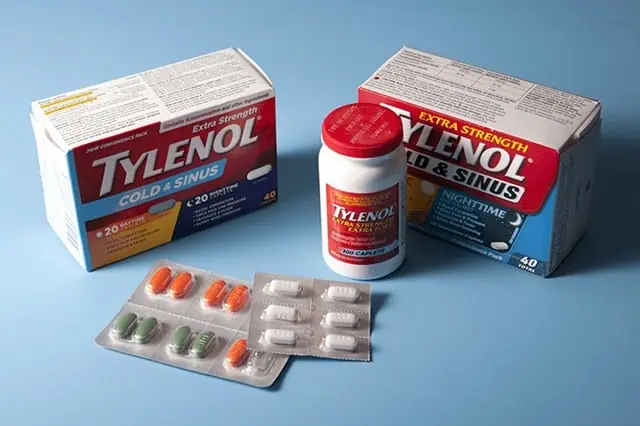
— Market value: $396.6 billion
— Dividend yield: 3.0%
— Sector: Health care
— Dividend-growth streak: 61 years
There’s an old saying that the best dividend stocks are “widow and orphan” investments, because they are the kind of assets you buy and hold forever—or at least until you die and pass them on as inheritance.
Johnson & Johnson (JNJ) is the prime example of a “widow and orphan” stock. It is among the 10 largest stocks on Wall Street (thus making it the member of several index exchange-traded funds), with a massive brand and more than 135 years of operations. JNJ is also one of the most credit-worthy companies in the world, ranking as one of just two U.S. companies with a top AAA rating for its corporate debt. (Microsoft (MSFT) is the other, if you’re curious.)
Related: The 7 Best Closed-End Funds (CEFs) That Yield Up to 12%
From a dividend perspective, the health care giant has raised its payouts for 61 years running—one of the longest track records on Wall Street, making it not just a Dividend Aristocrat, but a Dividend King. But it still has a payout ratio of less than 50%, hinting there’s ample headroom for future increases, too.
One major change that any potential buyer of JNJ shares should be aware of: In the second half of 2023, JNJ executed a spinoff of its dominant consumer health business, Kenvue (KVUE), that includes Tylenol and Band-Aid products. While that modestly reduced the overall footprint of the company, it also sharpened its focus on high-margin drugs and medical devices to ensure future success.
JNJ is deeply embedded in the health care system and a top dividend stock that income investors can rely on through any market environment.
Related: The 13 Best Mutual Funds You Can Buy
11. Nordson

— Market value: $14.8 billion
— Dividend yield: 1.2%
— Sector: Industrials
— Dividend-growth streak: 61 years
Nordson (NDSN) might not grab headlines like some of the more glamorous tech stocks or consumer brands, and its smaller market capitalization might keep it off the media’s radar. But its six decades of dividend growth make it a rock star among income investors—and qualify it for inclusion on this Dividend Kings list.
Based in Westlake, Ohio, Nordson has carved out a niche in engineering, manufacturing, and marketing differentiated products used for dispensing adhesives, coatings, sealants, biomaterials and other materials; for fluid management; for test and inspection; and for UV curing and plasma surface treatment. It boasts nearly 70 years of operation and a presence in nearly 40 countries.
In August 2024, the company raised its payout by 15%, to 78¢ per share quarterly, marking 61 consecutive years of dividend increases. This achievement places Nordson in an elite group of stocks known for long-term, reliable dividend growth.
Related: 10 Best Stock Advisor Websites & Services to Seize Alpha
12. Parker-Hannifin

— Market value: $80.8 billion
— Dividend yield: 1.1%
— Sector: Industrials
— Dividend-growth streak: 68 years
Parker-Hannifin (PH) is a Dividend King that specializes in motion and control technologies. The Cleveland-based industrial firm, founded in 1917, has carved a niche for itself in a diverse range of markets, from aerospace to climate control.
Related: 7 High-Quality, High-Yield Dividend Stocks
PH’s longevity and breadth of operation across multiple industries have been central to its steady financial performance. Its products are legion, spanning adhesives and coatings, refrigeration and air conditioning, values, gas generators, motors, filters, even aerospace systems and technologies.
Parker-Hannifin might not boast one of the most recognizable names on this list, but its dividend-growth streak commands respect. This Dividend King has paid higher distributions for 68 consecutive years—that includes a sweet 10% hike, announced in April 2024, to its current quarterly payout of $1.63 per share.
Related: 7 Best Schwab ETFs to Buy [Build Your Core for Cheap]
13. Procter & Gamble
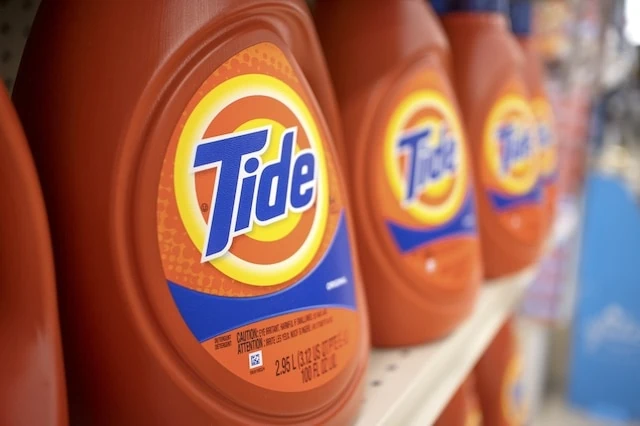
— Market value: $402.5 billion
— Dividend yield: 2.3%
— Sector: Consumer staples
— Dividend-growth streak: 68 years
In economic downturns, people might cut back on discretionary spending—but just like with food, they’ll also be slow to reduce spending in other consumer necessities like the household and personal-care products sold by Procter & Gamble (PG), one of the oldest Dividend Kings.
Like Young and the Invested’s content? Be sure to follow us.
Headquartered in Cincinnati, Procter & Gamble boasts a rich history dating back to 1837, when William Procter (a candle maker) joined forces with his brother-in-law, James Gamble (a soap maker). Now, with its global presence in over 180 countries, PG has become synonymous with essential consumer goods.
The company’s portfolio spans numerous categories, including Tide, Gain, Downy, Cheer, and Bounce laundry products; Gillette razors; Bounty paper towels; Charmin toilet paper; Pampers and Luvs baby products; and so much more. This diversification across everyday products provides steady demand, insulating P&G from volatility. Plus, these durable brands offer consistent pricing power, keeping consumers loyal even during periods of rising costs. This offers the company a superior moat (insulation from competitors).
Procter & Gamble also has an illustrious dividend history, including 133 consecutive years of paying dividends and 68 straight years of improving those distributions. P&G’s most recent hike was by 7% to 100.65¢ per share quarterly, announced in April 2024. Its stability and dividend reliability makes it one of the top choices for investors seeking steady, long-term dividend income.
Related: How to Get Free Stocks for Signing Up: 7 Apps w/Free Shares
What Is a Dividend Stock?

A dividend is a cash payment from a company to shareholders. Companies that regularly provide these cash payments are referred to as dividend stocks.
Often, investors favor dividend-paying stocks because, to regularly pay out those dividends, they have to generate consistent and significant profits—a good sign that the company is financially healthy and well-managed.
Investors also love dividends because they’re an additional source of returns. Stock prices simply don’t go up in a straight line over time; dividends can help smooth out periods of weak performance, and bolster periods of stronger price performance.
Want to learn more about investing, spending, taxes, and more? Sign up for Young and the Invested’s free newsletter: The Weekend Tea.
What Is Dividend Yield?
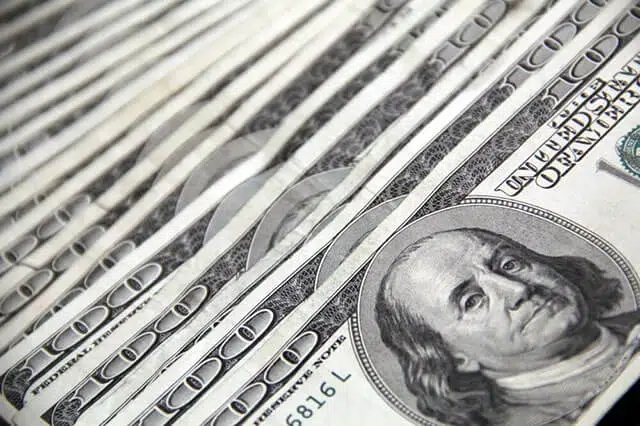
Perhaps the most important metric in this universe is known as dividend yield. This is a simple financial ratio that tells you the percentage of a company’s share price that is paid out across a year’s worth of dividend distributions.
Expressed as a mathematical equation, it’s simply:
Dividend yield = annual dividend / price x 100
The idea here is to normalize dividend payments regardless of stock price, different quarterly payments, even different payment frequencies (like monthly or annually). For instance, each of the following fictional stocks all have a dividend yield of 2.5%:
— Alpha Corp. currently trades for $40 a share. It pays a 25-cent quarterly dividend, for $1.00 per year in full. ($1 / $40 x 100 = 2.5%)
— Beta Inc. pays $1 in the first quarter, $2 in Q2, $3 in Q3 and $4 in Q4. That’s $10 in dividends for the full year. It trades for $400 a share. ($10 / $400 x 100 = 2.5%)
— Gamma Ltd. pays $2.50 just once per year. It trades for $100 a share. ($2.50 / $100 x 100 = 2.5%)
The idea is to focus on the percent of your initial investment you get back, and help you compare apples to apples.
What Is a Payout Ratio?
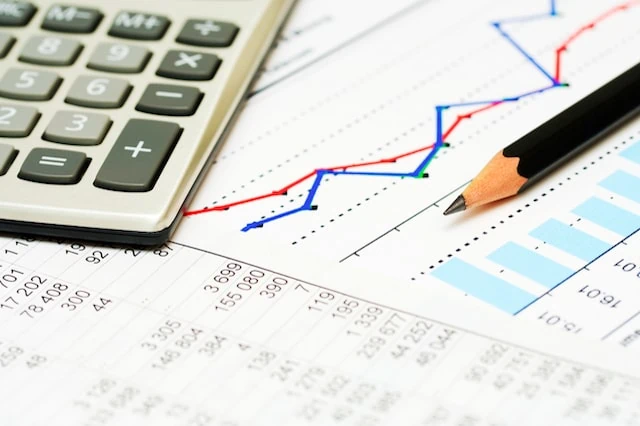
As with dividend yield, it’s important to normalize the dividend payout ratio for a stock. This is simply the percentage of a company’s earnings per share that is being distributed via dividends. It’s calculated as:
Payout ratio = dividends per share / earnings per share x 100
As an example, a stock that makes $100 million in profits and has 10 million shares of public stock has $10 in earnings per share. And if that company pays $5 annually in dividends, it has a payout ratio of 50% ($5 / $10 x 100 = 50%).
Related: The 7 Best Index Funds for Beginners
What Is Yield on Cost?

When you look up a stock’s information, the dividend yield listed is based on the most recent dividend and the current stock price.
That yield is often actually different than the one current shareholders enjoy. That yield is called “yield on cost,” which is the payout based on what you paid, at the moment you invested.
Let’s say you buy a stock at $100, and it pays $1 per share. It yields 1.0% when you buy it ($1 / $100 x 100 = 1.0%).
In a year, that stock has doubled to $200 per share, and it also doubled its dividend to $2 per share. If you look up its information, its dividend is still 1.0% ($2 / $200 x 100 = 1.0%).
That’s not your yield on cost, however. You’re still receiving that higher dividend of $2 per share. But your cost basis is still the original $100 you bought the share at. So now, your yield on cost has doubled, to 2.0% ($2 / $100 * 100 = 2.0%)!
Related: Best Vanguard Retirement Funds for an IRA
Related: 15 Best Investing Research & Stock Analysis Websites

Being a discerning investor is, for better or worse, all about the homework. If you’re “doing it right,” you’re culling through useful information regularly on stock analysis websites, stock news apps, research reports and other valuable information.
Being a data-driven investor myself, I love these kinds of tools. So let me share with you my favorite investment research software, stock research websites and informational apps.
Related: The Best Fidelity ETFs for 2024 [Invest Tactically]
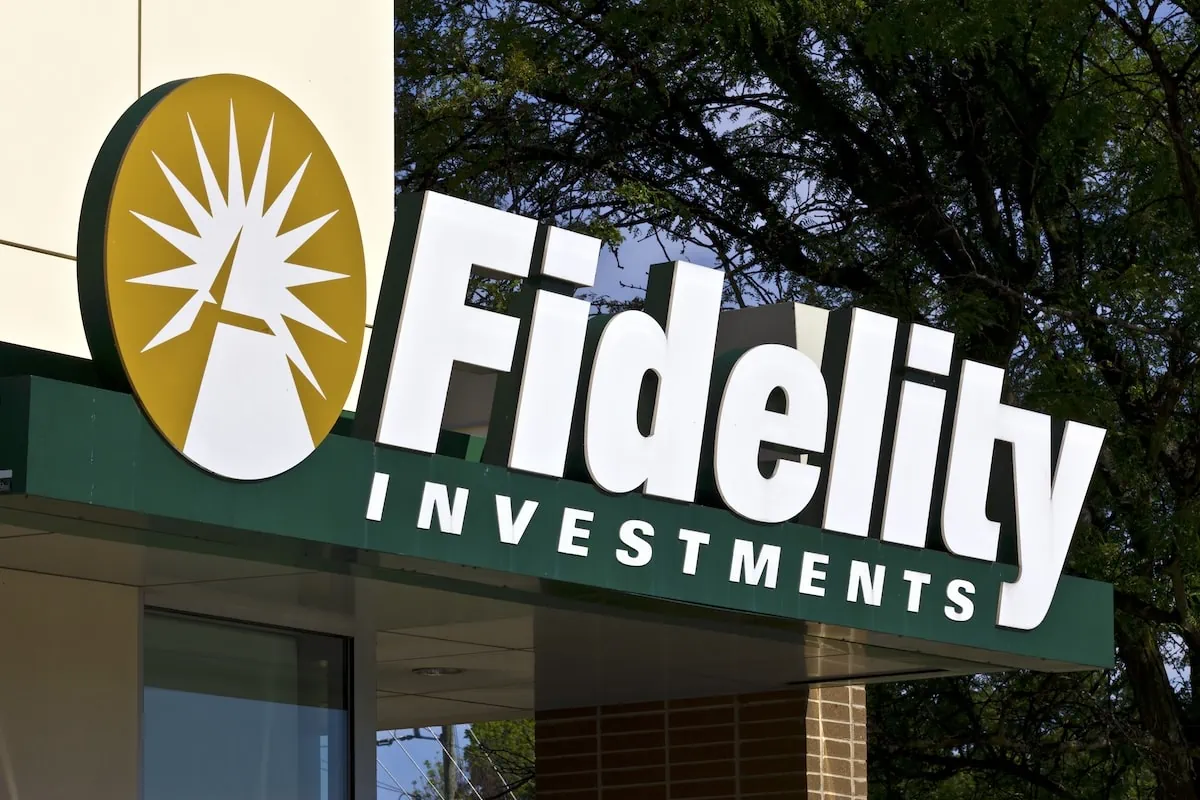
If you’re looking to build a diversified, low-cost portfolio of funds, Fidelity’s got a great lineup of ETFs that you need to see.
In addition to the greatest hits offered by most fund providers (e.g., S&P 500 index fund, total market index funds, and the like), they also offer specific funds that cover very niche investment ideas you might want to explore.
Related: Best Target-Date Funds: Vanguard vs. Schwab vs. Fidelity

Looking to simplify your retirement investing? Target-date funds are a great way to pick one fund that aligns with when you plan to retire and then contribute to it for life. These are some of the best funds to own for retirement if you don’t want to make any investment decisions on a regular basis.
We provide an overview of how these funds work, who they’re best for, and then compare the offerings of three leading fund providers: Vanguard, Schwab, and Fidelity.
Related: 9 Best Monthly Dividend Stocks for Frequent, Regular Income
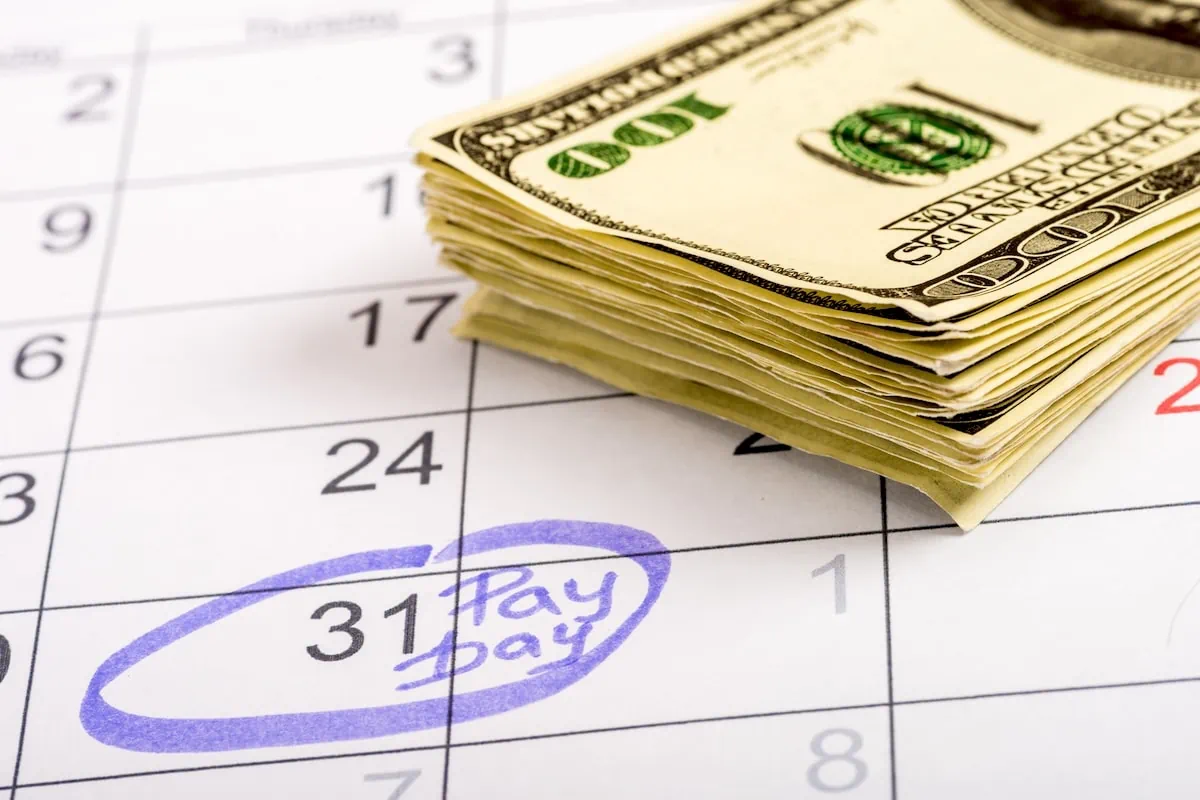
The vast majority of American dividend stocks pay regular, reliable payouts—and they do so at a more frequent clip (quarterly) than dividend stocks in most other countries (typically every six months or year).
Still, if you’ve ever thought to yourself, “it’d sure be nice to collect these dividends more often,” you don’t have to look far. While they’re not terribly common, American exchanges boast dozens of monthly dividend stocks.
Please Don’t Forget to Like, Follow and Comment
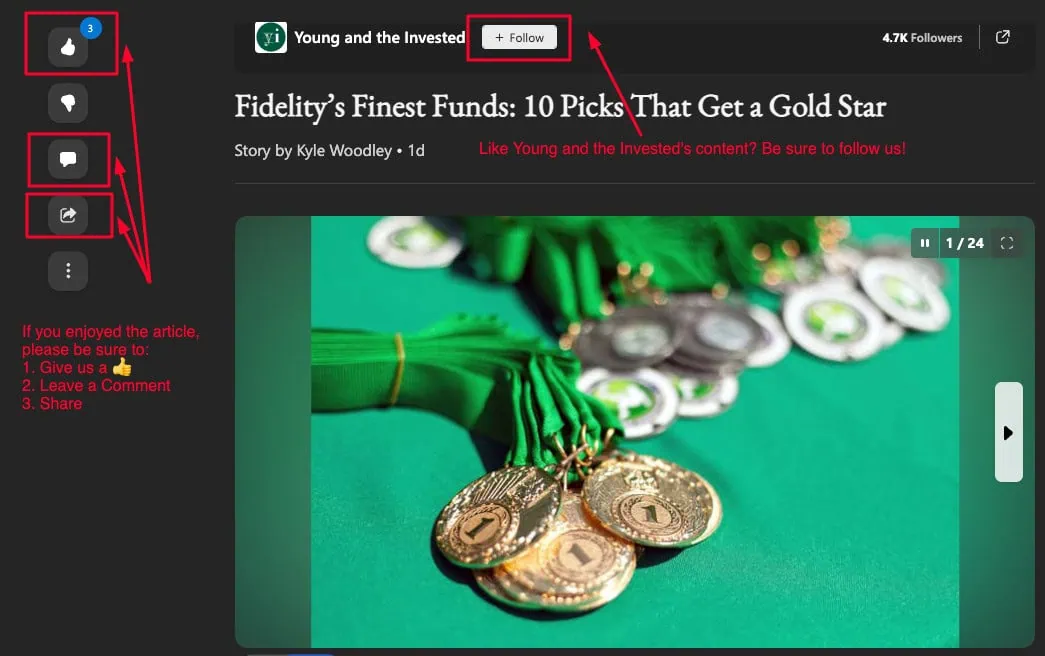
Did you find this article helpful? We’d love to hear your thoughts! Leave a comment with the box on the left-hand side of the screen and share your thoughts.
Also, do you want to stay up-to-date on our latest content?
1. Follow us by clicking the [+ Follow] button above,
2. Subscribe to The Weekend Tea, our weekly newsletter to read more about investing, spending, taxes, and more, and
3. Give the article a Thumbs Up on the top-left side of the screen.
4. And lastly, if you think this information would benefit your friends and family, don’t hesitate to share it with them!



